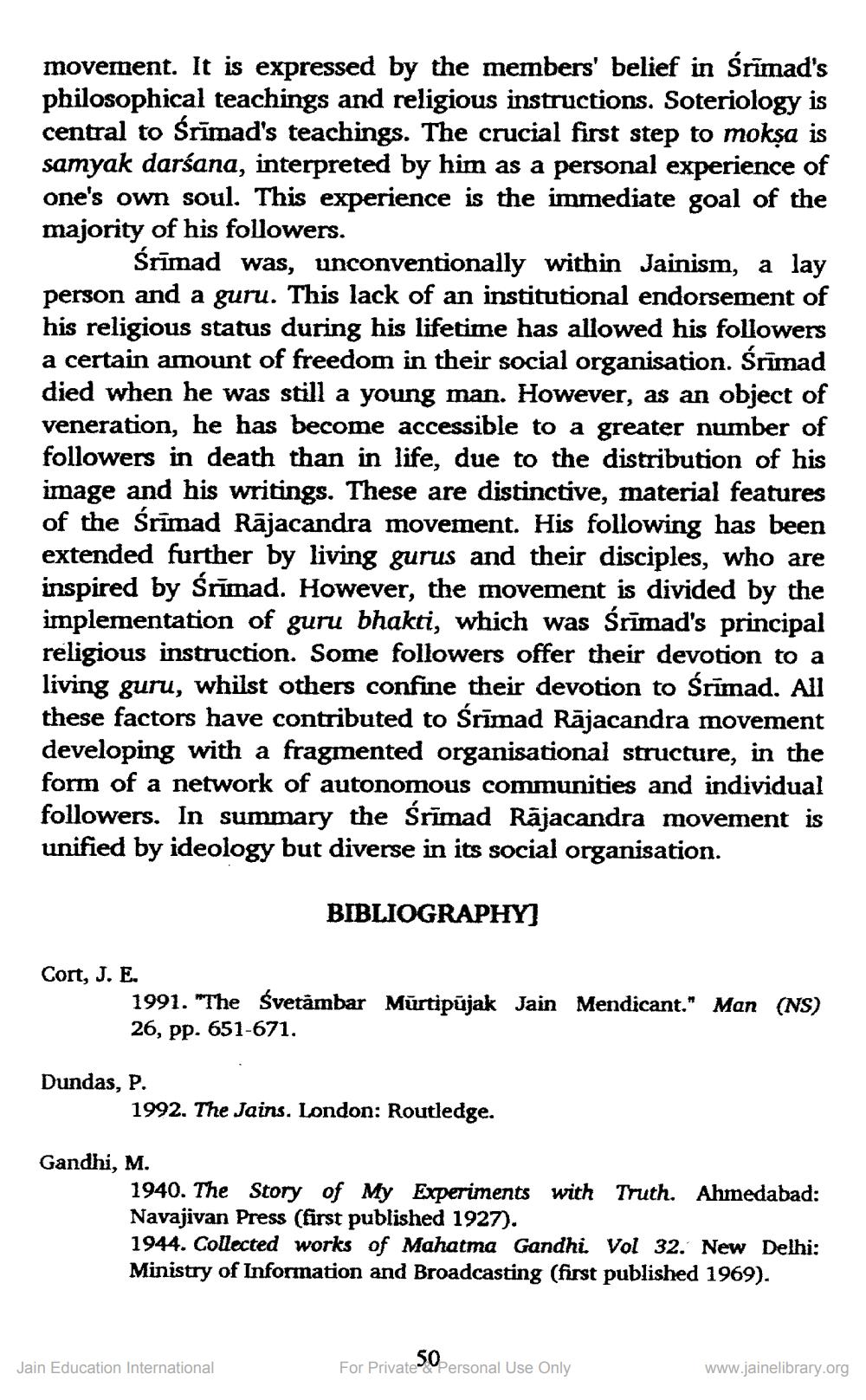________________
movement. It is expressed by the members' belief in śrīmad's philosophical teachings and religious instructions. Soteriology is central to śrīmad's teachings. The crucial first step to mokṣa is samyak darśana, interpreted by him as a personal experience of one's own soul. This experience is the immediate goal of the majority of his followers.
śrīmad was, unconventionally within Jainism, a lay person and a guru. This lack of an institutional endorsement of his religious status during his lifetime has allowed his followers a certain amount of freedom in their social organisation. Srimad died when he was still a young man. However, as an object of veneration, he has become accessible to a greater number of followers in death than in life, due to the distribution of his image and his writings. These are distinctive, material features of the Srimad Rājacandra movement. His following has been extended further by living gurus and their disciples, who are inspired by śrīmad. However, the movement is divided by the implementation of guru bhakti, which was śrīmad's principal religious instruction. Some followers offer their devotion to a living guru, whilst others confine their devotion to śrīmad. All these factors have contributed to śrīmad Rājacandra movement developing with a fragmented organisational structure, in the form of a network of autonomous communities and individual followers. In summary the śrīmad Rājacandra movement is unified by ideology but diverse in its social organisation.
BIBLIOGRAPHY]
Cort, J. E.
1991. "The Śvetambar Mūrtipūjak Jain Mendicant." Man (NS) 26, pp. 651-671.
Dundas, P.
1992. The Jains. London: Routledge.
Gandhi, M.
1940. The Story of My Experiments with Truth. Ahmedabad: Navajivan Press (first published 1927). 1944. Collected works of Mahatma Gandhi. Vol 32. New Delhi: Ministry of Information and Broadcasting (first published 1969).
Jain Education International
For Private Soxersonal Use Only
www.jainelibrary.org




